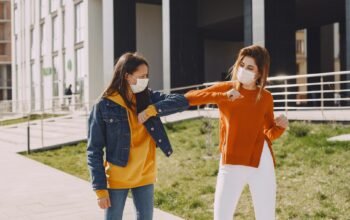Many doses of the monoclonal antibody drugs that treat mild to moderate COVID-19 are sitting unused around the country. There are logistical problems with providing these drugs and skepticism over whether they work. But two major health systems have had good success in deploying these medications, and they’re reporting hopeful results.
Monoclonal antibodies, manufactured by Regeneron and Eli Lilly, have been available since just before Thanksgiving. The Food and Drug Administration authorized them for emergency use after studies suggested that they reduced the risk of hospitalization among people at elevated risk. That includes people over 65 and those with underlying health conditions such as obesity.
The drugs are antibodies engineered to bind to the coronavirus so it can’t enter human cells. President Trump received a dose of the Regeneron product before it had been authorized for emergency use and his administration bought more than a million doses to distribute to hospitals around the country.
But uptake has been spotty, partly because of the difficulties of administering it. People eligible for the drug have active infections, so it’s important to treat them without exposing other patients. And each treatment, by infusion, takes an hour, followed by at least another hour of observation, and that process requires staff time in the midst of a pandemic surge.
“When you add all this up, it’s really a logistical challenge to deliver this therapy to a lot of people, says Dr. Howard Huang, at Houston Methodist Hospital. Nominally the hospital’s medical director of lung transplantation, he has been part of an effort to overcome those challenges. He says one strategy has been to open clinics around Houston. Doctors affiliated with the hospital are encouraged to identify and refer eligible patients for treatment.
“At this point we’re doing about 50 to 70 infusions a day,” he says. There has been a push to treat people as quickly as possible after infection. “From the time they call in to being infused, it’s usually less than two days.”
That timing is important, because even though patients are eligible for treatment within 10 days of their first COVID-19 symptoms, the drugs appear to be more effective early in the course of the disease.
And while medication sits unused in many locations across the country, Huang says that’s not the case at his hospital.
“Right now, we’re constrained more by the drug supply.” The federal government has allocated 32,000 doses of the antibody medicine to the state of Texas to date, and it’s up to state officials how to distribute them. Huang says Houston Methodist uses its allocation as fast as it gets it.
Many doctors nationwide aren’t so enthusiastic about these drugs, though. Treatment guidelines issued by the National Institutes of Health say there’s actually not good evidence to know whether they work. That’s because the Food and Drug Administration relied on studies of just a few hundred patients to grant emergency authorization.








